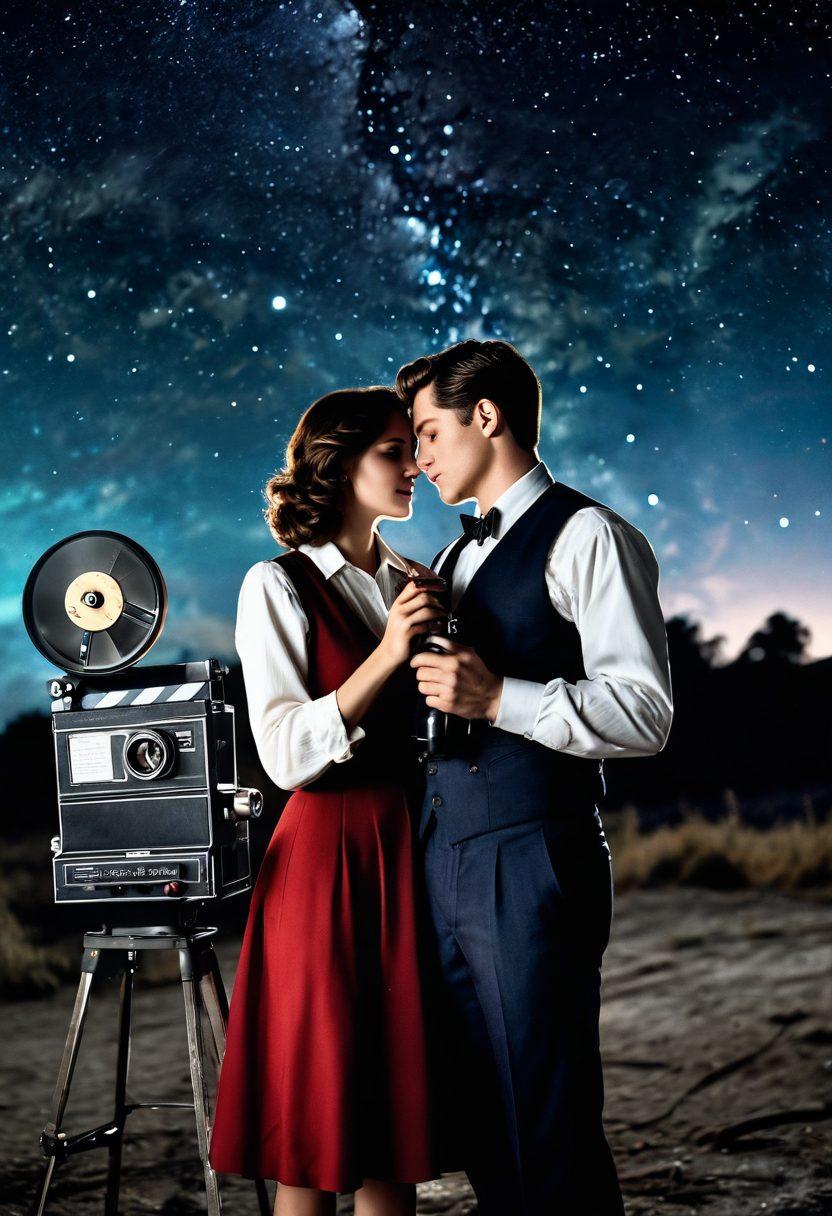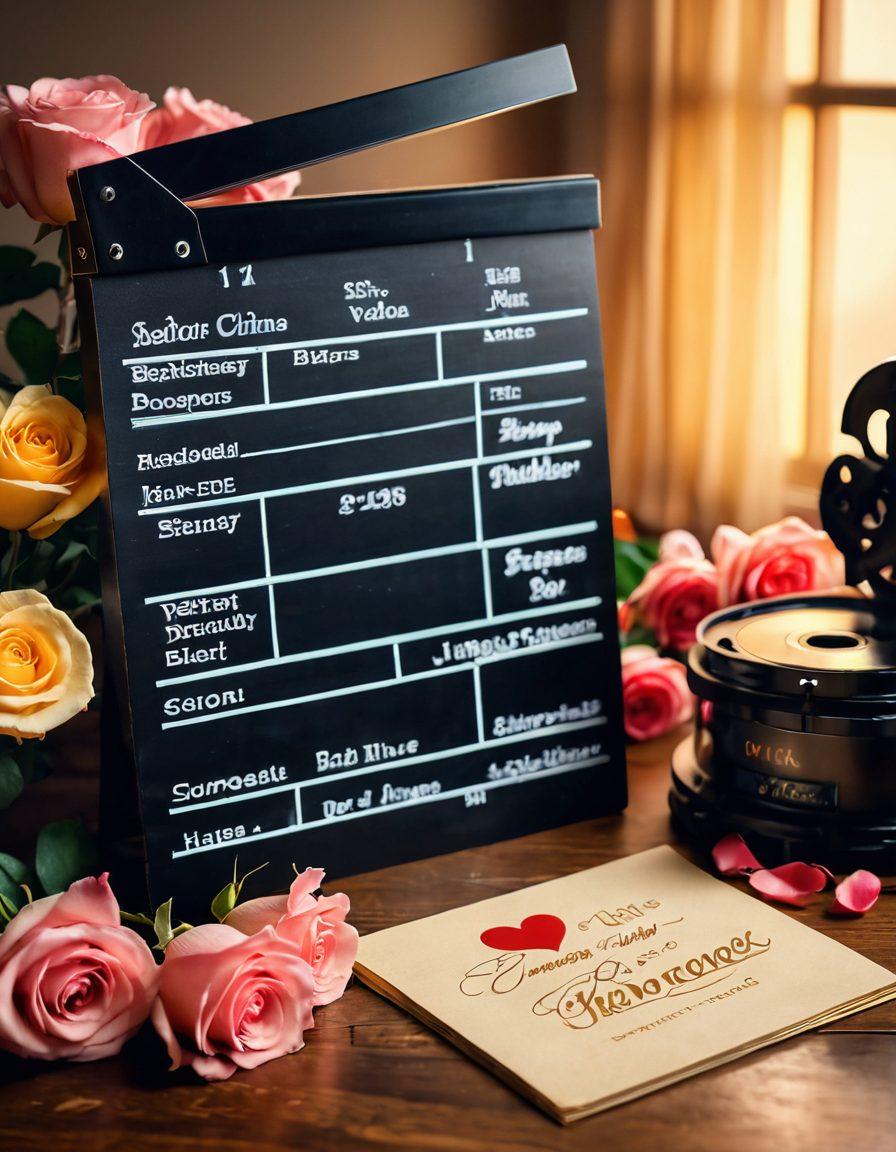Unveiling Love: A Deep Dive into the Most Passionate Romantic Films and Their Impact on Cinema
In an age where streaming services offer endless choices and film festivals showcase a dizzying array of new talent, the power of romantic films remains undeniably captivating. Whether it's the tense electric chemistry in a drama or the playful banter found in comedy films, the affection and passion conveyed through motion pictures resonate deep within our hearts. But what is it about love stories that continues to redefine romantic cinema? Is it the universal emotions, the intricate screenplays, or perhaps the reflections of our own relationships in film? Join me as we excavate these heartfelt narratives that have shaped not just the film industry, but our very understanding of love itself.
From timeless classics to compelling biopics and innovative documentaries, the world of romantic films has a rich tapestry of stories that tug at our heartstrings. Consider, for instance, the game-changing influence of films like "Casablanca" and "The Notebook." Each scene weaves a narrative where love is beautifully flawed, passionately intense, and sometimes heartbreakingly bittersweet. As you immerse yourself in these cinematic experiences, have you ever wondered how these films inspire and influence the box office hits we see today? Perhaps it’s the essence of how they vividly illustrate the complexities of relationships that captures both critics and audiences alike.
Consider this quote by the legendary filmmaker, Woody Allen: 'Love is the answer, but while you're waiting for the answer, sex raises some pretty interesting questions.' This reflects the curiosity and yearning that romance films evoke. The exploration of affection isn’t merely limited to the passion between two characters; it embodies friendships, family bonds, and even self-love. As we sweep through the roar of laughter in comedy films and the quiet passion of drama, one cannot help but appreciate how these narratives provide vibrant insights into our own lives. Are we, too, seeking that same kind of affection? This bond between the characters often leads to compelling discussions at film festivals where movie insights are shared, critiques scrutinized, and connections made.
Romantic films transcend mere entertainment; they challenge societal norms and provoke conversations about what love really means. They remind us that every love story is a unique exploration of drama and joy, heartbreak and triumph. As you reflect on your favorite films, consider the narrative techniques that struck a chord—did the screenplay reveal deeper character emotions? Or did the cinematography elevate the depiction of passion? When we engage with these films on a level beyond the surface, we discover that they are not just visual stories; they are compelling reflections of our desires and societal structures.
Finally, if you're looking for viewing recommendations that embrace the many facets of affection and passion, don’t miss out on contemporary masterpieces that continue to shape romantic cinema today. From quirky indies to grandiose blockbusters, there’s a wealth of content waiting to be explored. How can you immerse yourself in classic cinema while also staying tuned to groundbreaking new works? Perhaps the next time you settle down for a movie night, you might dive into the deeper themes of love portrayed on screen and reflect on their impact on our understanding of relationships in film. Remember, every film, from the drama-heavy narratives to the light-hearted comedies, holds the promise of new insights into the ever-elusive world of love.
From Classic Love Stories to Modern Box Office Hits: A Journey Through Passionate Films
In the realm of cinema, few genres evoke as much emotion as romantic films. From passionate love stories that leave audiences in tears to charming comedies that make you laugh until your sides hurt, the representation of affection on screen captures the essence of our shared human experiences. Imagine sitting in a dark theater, surrounded by strangers, yet bound together by the power of love conveyed through motion pictures. Whether it’s a classic cinema play or a modern box office hit, the beauty of romantic films lies not just in their narratives, but in their ability to transport us into a world where passion reigns supreme and love conquers all.
As we take a journey through the cinematic landscape filled with romantic narratives, one must wonder, what makes these films so impactful? Is it the screenplays that seamlessly weave tales of desire? Or perhaps it’s the profound connections portrayed between characters that remind us of our own experiences in relationships? Films like 'Casablanca' and 'The Notebook' have transitioned into staples of classic love stories, celebrated not just for their storytelling but for the way they illuminate the complexities of love. Critics often praise these works, not merely as entertainment but as cultural touchstones that resonate through generations.
In today’s fast-paced film industry, the evolution of romantic films has taken on new dimensions. Box office hits such as 'La La Land' and 'Crazy Rich Asians' present modern love stories with diverse perspectives, demonstrating that passion is a universal language, transcending cultural and social barriers. These motion pictures have breathed new life into the genre, challenging norms and expanding the narrative scope of on-screen relationships. How thrilling is it to see stories from different backgrounds and walks of life expressed through captivating performances? It reaffirms the idea that love exists everywhere, in all its forms, and deserves to be represented authentically.
Yet, while we celebrate these films, we shouldn’t overlook the significance of film critiques and festivals that provide lenses through which we can analyze romantic films. They offer invaluable insights into how relationships in film reflect society's evolving views on love and connection. Documentaries about the making of these biopics, or films dedicated to exploring the boundaries of affection, remind us of the intricate artistry behind every cinematic experience. Have you ever watched a behind-the-scenes feature and thought to yourself, ‘Wow, I never realized how much goes into crafting a love story!’? It's a gateway to understanding both the film industry and the very fabric of our relationships.
For those seeking viewing recommendations, how about revisiting the timeless classics? Or perhaps diving into more contemporary romantic dramas and comedies that have taken audiences by storm? The beauty of these films lies in their relatability—each scene can mirror our own romance, spark nostalgia, or provide a fresh perspective on love. Whether it’s the drama of a heart-wrenching goodbye, the comedy of an awkward first date, or the simple joy of discovering true companionship, there's a movie for every heart. So grab your popcorn and find a cozy spot because as we explore the impact of romantic films, we embark on an emotional rollercoaster that is bound to leave us craving for more stories of affection and passion.
Behind the Scenes of Romance: How Screenplays Shaped Relationships in Cinema
In the realm of cinema, where passion collides with storytelling, the intricacies of relationships unfold. Romance is an evergreen theme, captivating audiences for generations. From timeless classic cinema to modern cinematic experiences, every love story carries a certain weight, often encapsulated within the pages of a screenplay. As we delve behind the scenes of these beloved romantic films, we uncover how screenplays shape the affection between characters and ultimately influence viewers' perceptions of love. Have you ever wondered what makes one love story resonate over another? Let's explore the power of narrative in motion pictures.
Every romance film has its heartbeat, pulsing through its screenplay like a love letter written for the ages. Screenwriters meticulously craft dialogues and scenes that breathe life into characters, allowing viewers to experience an array of emotions – from joy to heartache. Take, for instance, the romances depicted in biopics and documentaries. They don't merely narrate a love story; they offer a glimpse into the complexities of relationships, showcasing that love often thrives amidst challenges. A memorable line from the film 'The Notebook' resonates with many: 'It wasn't over. It still isn't over.' This sentiment embodies the essence of enduring affection that many spectators yearn to feel in their own lives.
The film industry is a tapestry woven with diverse genres, each interpreting love differently—whether through the soft lens of a drama or the lighthearted moments of comedy films. Screenplays can deliver witty banter, making audiences laugh while simultaneously exploring the nuances of relationships in film. The brilliant narrative in 'When Harry Met Sally' leads us to ponder: can men and women ever just be friends? Such questions not only enrich the cinematic experience but also invite us to reflect on our own interactions—reminding us that love, indeed, can take many forms.
Moreover, the impact of screenwriting extends beyond the silver screen. Film critiques often examine the evolution of romantic narratives in cinema, paving the way for box office hits that redefine conventional wisdom about love. Nowadays, film festivals spotlight these innovative romantic films, showcasing fresh perspectives that inspire viewing recommendations for those eager to explore the vast landscape of love stories. These platforms encourage conversations about how relationships are depicted and serve as a reminder of how powerful storytelling can shape societal views on affection.
As we ponder over the captivating world of romantic films, let’s take a moment to appreciate the artistry found within their screenplays. They serve not only as scripts but as blueprints for love itself, offering insights into human connections that echo in our hearts. Next time you sit down to enjoy a romantic film, remember the craftsmanship behind it. Allow yourself to be swept away by the passion and affection that screenwriters imbue in their characters. After all, isn’t it the stories of love that linger with us, long after the credits roll?


